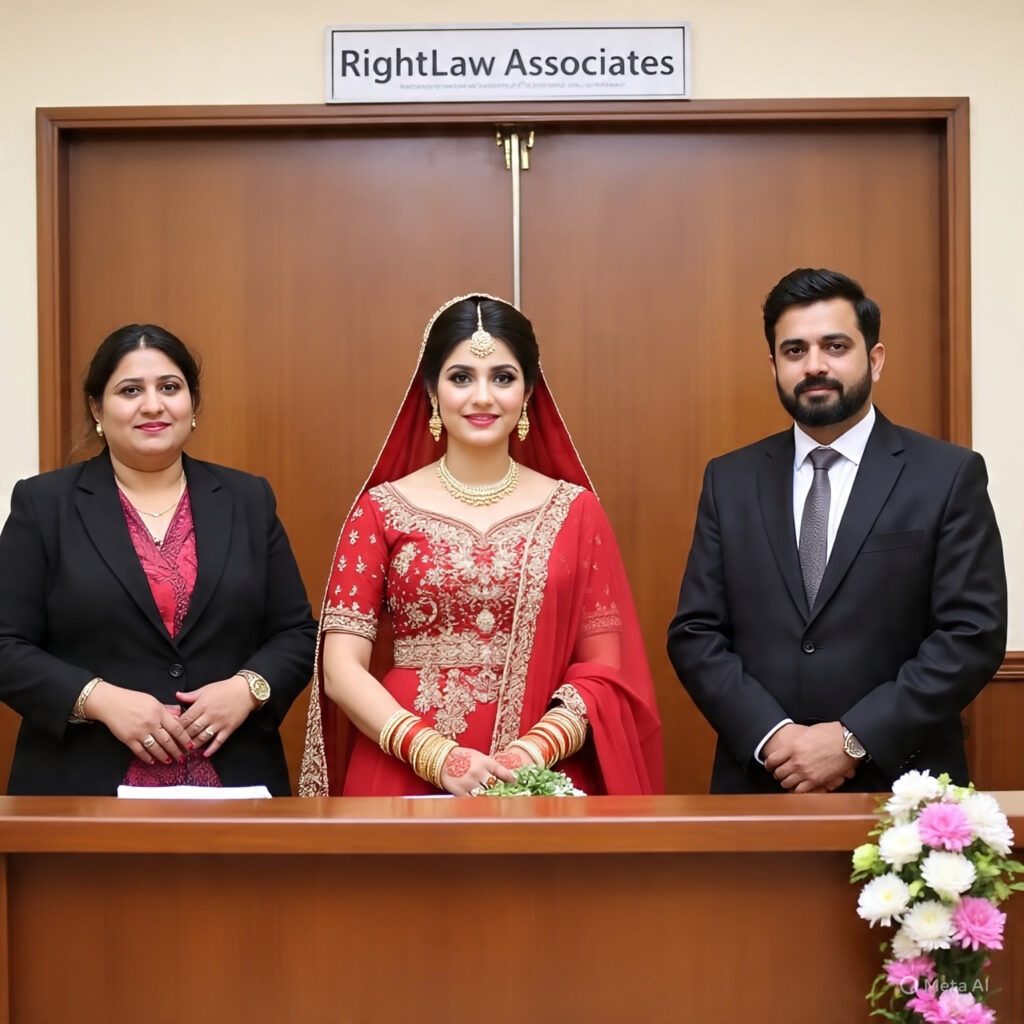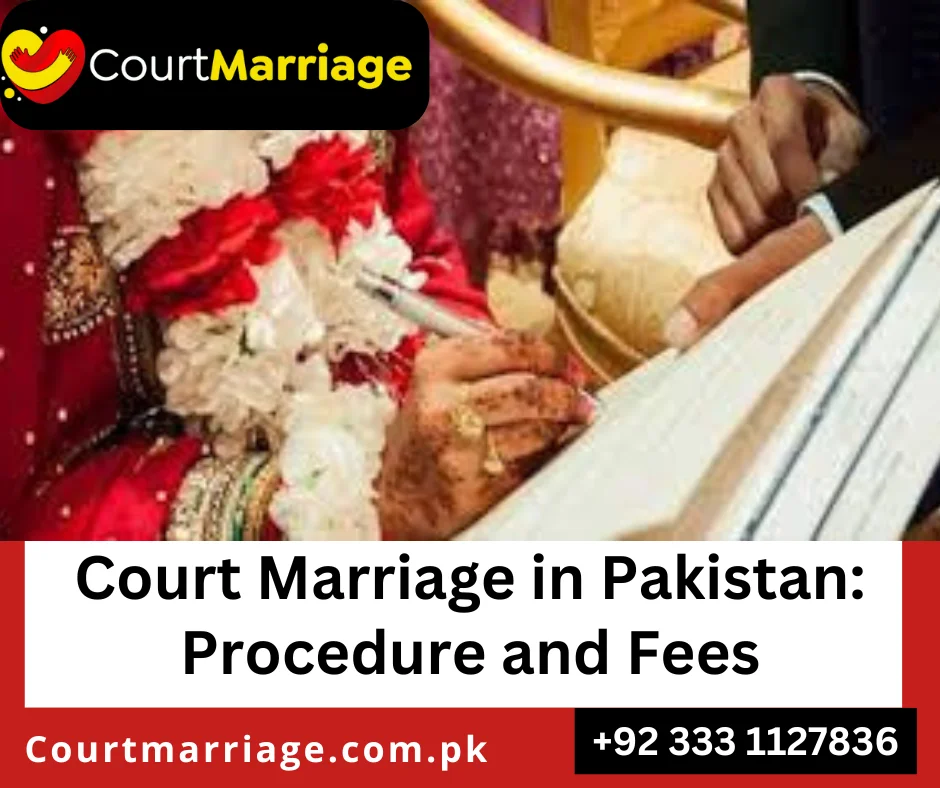Court Marriage Service in Islamabad: Procedure and Fee
Do you want to understand the procedure and associated fees for a court marriage service in Islamabad? We aim to provide a clear and concise guide for individuals seeking to solemnize their marriage through the legal procedure in Pakistan.
Understanding Court Marriage in Pakistan
A court marriage in Pakistan is a legal union between a man and a woman who are both adults and of sound mind, performed under the provisions of the Family Laws. It is a simplified process compared to traditional ceremonies, often chosen for its efficiency and legal recognition.
Eligibility Criteria
To be eligible for a court marriage in Islamabad, the following conditions must be met:
- Age: Both individuals must be of marriageable age (18 years for females and 18 years for males, according to Pakistani law).
- Consent: Both parties must give their free and unequivocal consent to the marriage.
- Sound Mind: Both individuals must be of sound mind and capable of understanding the implications of marriage.
- No Legal Impediments: There should be no legal impediments to the marriage, such as existing valid marriages (unless allowed by law, e.g., second marriage with permission).
Required Documents
The following documents are typically required for a court marriage:
- National Identity Cards (CNIC): Original and copies of CNICs for both the bride and groom.
- Photographs: Passport-sized photographs of both the bride and groom.
- Witnesses: Two adult Muslim male witnesses (or one male and two female Muslim witnesses) with their CNICs.
- Affidavit: An affidavit from both parties stating their free will, age, and that there are no legal impediments.
- Divorce Decree/Death Certificate (if applicable): If either party is divorced or widowed, relevant legal documents are required.
Court Marriage Procedure in Islamabad
The court marriage procedure generally involves the following steps:
- Preparation of Documents: Gather all necessary documents as listed above.
- Consultation with Legal Counsel: It is advisable to consult our family lawyer experienced in family law to ensure all legal requirements are met.
- Appearance Before a Marriage Registrar/Judge: Both parties, along with their witnesses, will appear before a marriage/Nikah registrar.
- Verification of Consent and Documents: The registrar will verify the identities, age, and free consent of both parties. The provided documents will also be scrutinized.
- Solemnization of Marriage: The marriage will be solemnized, and the Nikah Nama (marriage contract) will be signed by both parties, witnesses, and the Nikah registrar.
- Registration of Marriage: The Nikah Nama will be registered with the relevant Union Council, making the marriage legally valid and officially recorded.

Fee Structure for Court Marriage Service
| Service | Estimated Fee (PKR) |
|---|---|
| Legal Consultation | FREE |
| Nikah Khawan & Nikahnama Registration | PKR 15,000 |
| Marriage Registration Certificate Fee | PKR 5,000 (OPTIONAL) |
| Lawyer’s Professional Fee | PKR 10,000 |
| Total Estimated Cost | PKR 25,000 to 30,000 |
Note: The figures provided above are estimates and are subject to change. It is highly recommended to discuss the exact fee structure with our legal counsel beforehand.
Important Considerations
- Legal Advice: Always seek legal advice from a qualified family lawyer to ensure a smooth and legally sound process.
- Witnesses: Ensure your witnesses are reliable and have their original CNICs.
- Timelines: While court marriages are generally quicker, the exact timeline can depend on court schedules and document processing.
- Future Reference: Keep multiple copies of your Nikah Nama and the marriage registration certificate for future reference.
For further assistance or to initiate your court marriage process, please contact us to schedule a consultation with our expert family lawyers. Our team is dedicated to providing efficient and reliable services to facilitate your legal union.


Frequently Asked Questions (FAQs) About Court Marriage in Islamabad
1. What is a court marriage in Islamabad?
A court marriage in Islamabad is a legal union solemnized under Pakistani family law, performed before a Nikah registrar or magistrate. It ensures that both partners are married lawfully, with full legal recognition and official documentation.
2. Who can perform a court marriage in Islamabad?
A court marriage can be solemnized by an authorized Nikah registrar or lawyer, under the supervision of a family court or magistrate, ensuring all legal and Shariah requirements are met.
3. What are the legal requirements for court marriage in Pakistan?
Both individuals must be 18 years or older, of sound mind, and must give free consent. They must also be single, divorced, or widowed without any existing legal impediment to marriage.
4. What documents are required for a court marriage in Islamabad?
You will need original CNICs, passport-sized photos, two witnesses’ CNICs, affidavits of free will, and if applicable, divorce or death certificates for previously married persons.
5. How long does the court marriage process take?
The entire court marriage procedure in Islamabad can usually be completed within one to two hours, depending on document readiness and witness availability.
6. Is a court marriage legally valid in Pakistan?
Yes, once the Nikah Nama is duly registered with the Union Council, your court marriage is fully valid and legally recognized throughout Pakistan.
7. Is court marriage allowed under Islamic law?
Yes. Court marriage in Pakistan is conducted in accordance with Islamic Shariah, ensuring that the Nikah ceremony is performed by a qualified Nikah Khawan and witnesses are present.
8. Can foreigners get married through court marriage in Islamabad?
Yes. Foreign nationals can legally marry in Pakistan through court marriage, provided they submit valid passports, NOCs (No Objection Certificates), and meet all legal requirements.
9. What is the cost of court marriage in Islamabad?
Court marriage fees in Islamabad generally range between PKR 25,000 to PKR 30,000, depending on services like legal consultation, Nikah Khawan arrangement, and certificate registration.
10. Is the court marriage certificate recognized internationally?
Yes. A legally registered Nikah Nama and Marriage Registration Certificate (MRC) from the Union Council are recognized internationally and can be attested by the Foreign Office or embassies for use abroad.
11. Do both parties need to be present for court marriage?
Yes. Both the bride and groom must be physically present to provide free consent before the registrar. For overseas Pakistanis, online Nikah services are available through a video conference setup.
12. What role does a lawyer play in court marriage?
A family lawyer ensures your court marriage documents are legally sound, assists with registrar coordination, and maintains confidentiality throughout the entire process.
13. Can I have a court marriage without informing my family?
Yes. Court marriage in Pakistan is a personal legal right. Lawyers maintain strict confidentiality and can assist couples who wish to marry privately without family involvement.
14. Is it mandatory to have witnesses during court marriage?
Yes. Under Islamic and Pakistani law, at least two adult Muslim male witnesses (or one male and two female witnesses) are required to solemnize a valid Nikah.
15. What happens after the court marriage is completed?
After completion, couples receive a Nikah Nama, which is later registered at the Union Council. You can also obtain a NADRA Marriage Registration Certificate for legal and immigration purposes.
16. How can I register my marriage with NADRA after a court marriage?
Once your Nikah Nama is registered with the Union Council, NADRA issues a Marriage Registration Certificate (MRC) through the local government office or Cantonment Board.
17. What is the difference between court marriage and traditional marriage?
A court marriage is a simplified legal procedure performed before a registrar or magistrate, while a traditional marriage involves family arrangements and cultural rituals. Both are valid if legally registered.
18. Can a Christian or non-Muslim couple perform a court marriage in Islamabad?
Yes. Non-Muslim couples can legally marry in Pakistan through court procedures according to their respective personal laws, with documentation verified by a civil marriage registrar.
19. What if one party is already married?
If a person is already married, a second marriage can only be performed with written consent from the first spouse or permission from the Arbitration Council under Pakistani law.
20. Why choose a law firm for court marriage services in Islamabad?
Hiring an experienced family and court marriage lawyer ensures that your marriage process is legally valid, confidential, and efficiently completed, with all documents properly verified and registered.
